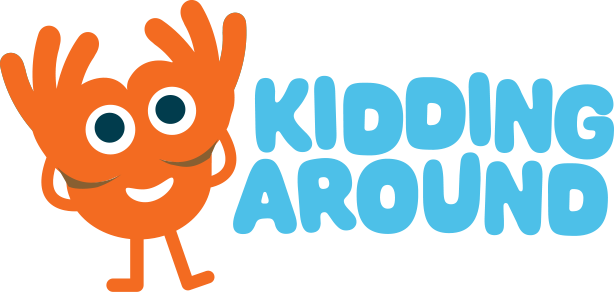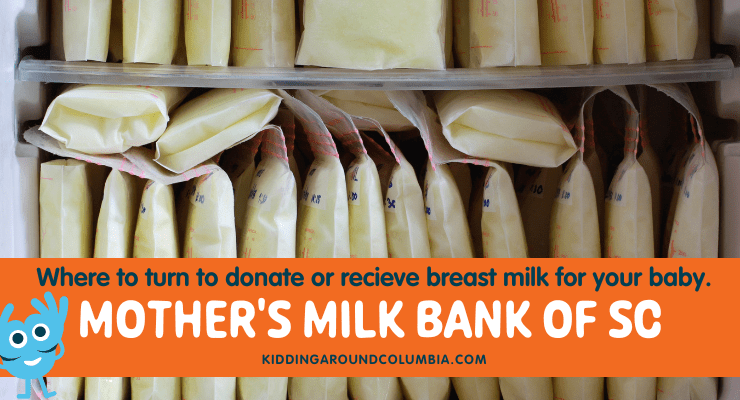Are you a parent that is in search of breast milk for your child? Or are you a mother who has more breast milk than you know what to do with? You’re in luck, because there is a resource available for breast milk donors and recipients! We’re here to share everything you could possibly want to know about human milk banks, from qualifications to safety concerns and where exactly you can donate!
What is a Milk Bank?
According to The Human Milk Banking Association of North America (HMBANA) a “milk bank collects breast milk from mothers who have more than their babies need, then screens, pasteurizes, and tests it, and, finally, dispenses it to premature and fragile infants in need, either in hospitals or homes.” Milk banks can be either nonprofit or for-profit.
What is the Human Milk Banking Association of North America?
The Human Milk Banking Association of North America (HMBANA) accredits nonprofit milk banks throughout the United States and Canada, and sets universal guidelines for donated pasteurized breast milk. There are currently 31 HMBANA members. Their mission is to aid mothers in donating their extra breast milk for use. HMBANA sets universal donation guidelines to all 31 members in order to ensure the safety of all breast milk donated to recipients. “Together, we advocate for donor milk as a universal standard of care, regardless of ability to pay,” says HMBANA.
South Carolina Milk Bank
The Mother’s Milk Bank of SC (MMBSC), based at the Medical University of South Carolina (MUSC) in Charleston, SC, is the state’s only human milk bank. MMBSC opened in 2015, and was developed by MUSC, South Carolina Neonatal Consortium, and South Carolina Birth Outcomes Initiative. It is one of HMBANA’s 31 nonprofit members. Their mission is to promote the health of South Carolina babies by providing access to safe, pasteurized donor human milk.
The Mother’s Milk of South Carolina, provides a nonprofit service to South Carolina hospitals by providing donated breast milk to neonatal intensive care units (NICU) for premature babies as well as other babies in need. Babies are considered premature if they’re before 37 weeks of pregnancy.
In addition to being premature, there are several other medical reasons that a doctor may prescribe donor milk to babies:
- Failure to thrive on formula
- Death or absence of mother
- Failing immune systems
- Insufficient lactation of mother or supplemental needs while a mother awaits her own breast milk supply during the first few weeks of the baby’s life
- Adopted, foster, or surrogate babies whose families request breast milk
- Illness or health risk from the biological mother preventing breastfeeding
Lindsay Millonzi, MMBSC Milk Bank Program Manager says, “South Carolina breastfeeding mothers with surplus milk supply are invited to become donors to provide pasteurized milk to SC infants for whom mother’s milk supply is limited.”
According the American Academy of Pediatrics website, “Pasteurized human donor milk is recommended when a mother’s own milk is not available or sufficient.
Anyone who’s interested in helping should go to Mother’s Milk of South Carolina website scmilkbank.org to complete their questionnaire. Once the information has been recorded, you are then able to select which service you’d like, choosing from donating, purchasing, volunteering or giving.
There are three easy steps to becoming a donor:
- 10 to 15 minute phone screen
- Complete and return an informational packet (potential donor’s OBGYN must also complete the packet)
- Complete a free blood test at LabCorp
Not just anyone can be a donor, however. Due to safety and health concerns, Mother’s Milk follows strict HMBANA’s donor criteria guidelines.
You are ineligible to donate breast milk if any of the following apply to you:
- Smoke or use any tobacco products
- Use illegal drugs
- Drink more than two alcoholic drinks per day
- At risk for HIV
- Have a positive blood test for HIV, HTLV, Hepatitis B or C, or Syphilis
- Received an organ or tissue transplant, or a blood transfusion in the last four months
- Were in the United Kingdom for more than three months between 1980 and 1996
Once approved after successfully completing the three-step screening, you are then able to donate your breast milk!
Breast Milk Safety
“All breast milk is expected to be stored in accordance with HMBANA guidelines,” says Millonzi.
These strict guidelines were developed with consultation with the Centers for Disease Control & Protection (CDC) and the US Food and Drug Administration (FDA).
Breast milk can be frozen until it’s ready to be donated. All donors are expected to refrigerate or freeze milk within 30 minutes of pumping. Breast milk can be refrigerated for up to 96 hours.
Can a mother donate milk as long as she’s producing milk? Yes, but there is a deadline. Milk must be pumped within the first year postpartum. Millonzi says, “We cannot accept milk donations that were pumped after your child’s first birthday.”
There’s no minimum or maximum threshold when it comes to how little or how much milk can be donated either. Millonzi says, “Every drop counts!”
Compensation
Because it’s a nonprofit, Mother’s Milk cannot compensate donors monetarily. The organization does, however, provide breast milk storage bags free of charge.
Donation Deposit Sites: Breast Milk Bank Columbia, SC
“Depot” sites were created statewide in order to make the donor milk drop-off more convenient for mothers to deposit milk. There are a total of 26 breast milk depot sites across the state. Chances are you have at least one in your area! See below to find a depot closest to you:
Prisma Health Baptist Hospital
1519 Marion Street
Columbia, SC 29201
Palmetto Health Baptist
Taylor & Marion Street
Columbia, SC 29220
Palmetto Richland
5 Richland Medical Park
Columbia, SC 29203
Prisma Health Richland Hospital
5 Richland Medical Park Drive
Columbia, SC 29203
Lexington County Cooperative Clemson Extension Service
605 West Main Street, Suite F
Lexington, SC 29072
Aiken County Cooperative Clemson Extension Service
1555 Richland Avenue East, Suite 500
Aiken, SC 29801
For more information please contact:
The Mother’s Milk of South Carolina
843.792.5415
scmilkbank@musc.edu



